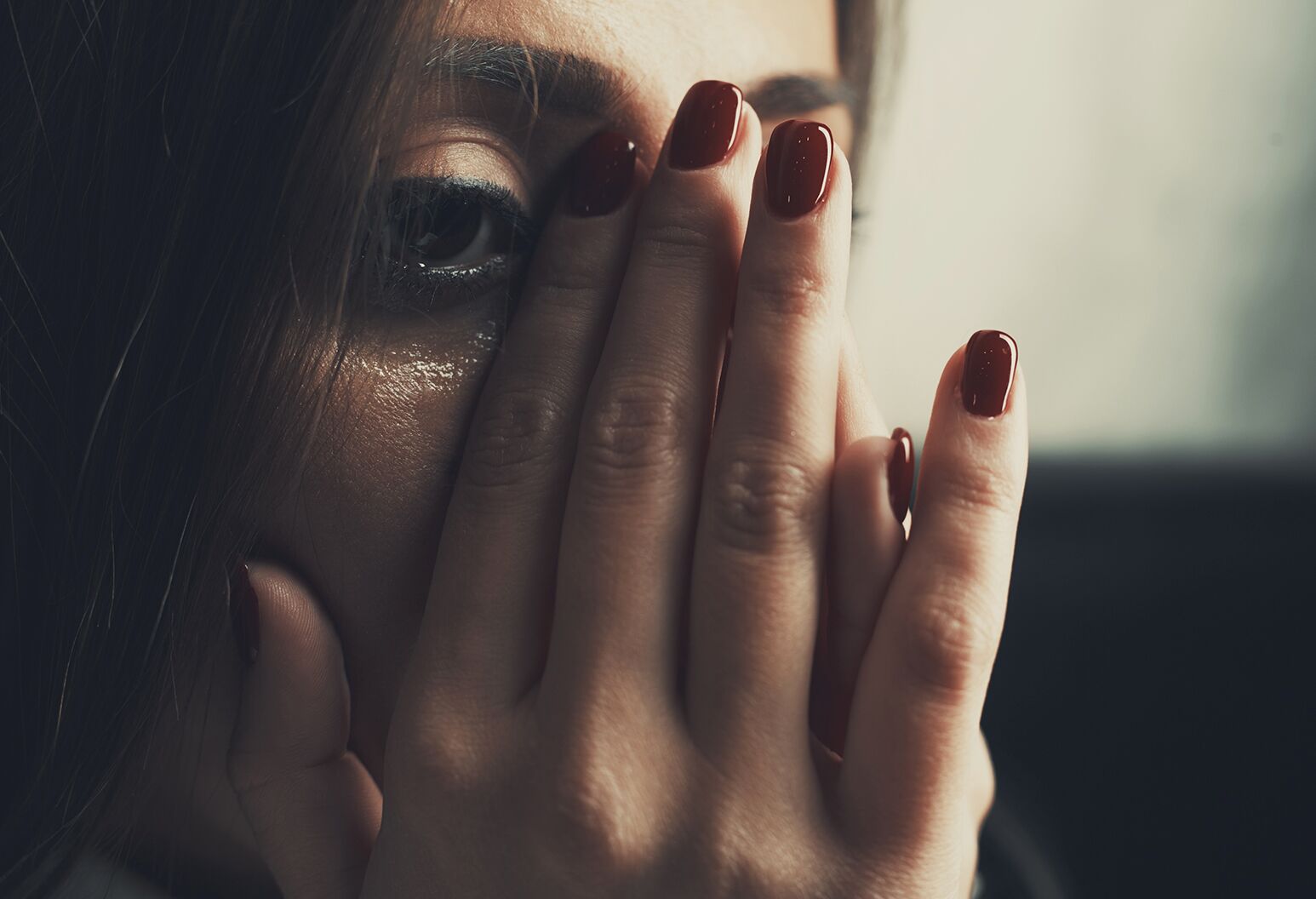covid
Long COVID’s Impact On The Brain

Domestic violence is on the rise worldwide. Even with lockdowns, you can get help.
5 min read
When state governments issued stay-at-home orders, the idea was to keep us safe from the coronavirus. But for people living in abusive relationships, home may actually be anything but safe. Instead, they’re faced with the threat of physical, sexual, and emotional abuse—and are less able than ever to call a hotline for help, with an abuser in the next room or hovering nearby. This includes children, who, without school may be without a safe place to escape their abusers.
According to a recent New York Times article, cases of domestic violence have risen worldwide as a result of lockdowns. Nassau County alone saw a 10% rise in reports of domestic violence for the year compared to the same period last year. “The level of anxiety that everyone is living under is unprecedented,” says Dr. Victor Fornari, MD, a Northwell Health psychiatrist. “Being together in close quarters for long periods of time is something that most people have never done. When you add to that the increased levels of frustration because of unemployment, furloughs, and financial pressures, it can increase depression and people self-medicating with alcohol and drugs, which can also lead to abuse. I think the home environment has become toxic for many people.”
Any kind of physical aggression—hitting, pushing, shoving, threatening someone with a gun or knife, or nonconsensual sex—is considered domestic violence. “Domestic violence always revolves around power and control,” says Cindy Scott, executive director of the Safe Center of Long Island, a nonprofit that helps victims of intimate partner abuse. “In a quarantine, abusers have the ultimate control. They’re more able to isolate victims and have control over them than at any other time.”
If you experience this kind of aggression at the hands of your partner and particularly if you feel that your life or your children’s lives are threatened, call 911 immediately.
Emotional abuse can be nearly as devastating, even without the visible bruises. This kind of abuse ranges from someone yelling at you, berating or degrading you, isolating you from family and friends, or not allowing you access to money or food. In the case of the coronavirus, it could also include denying you access to essentials such as hand sanitizer or facemasks. Gaslighting, in which an abuser distorts information to make their victim second-guess themselves or question their sanity, is a particularly powerful form of emotional abuse.
According to Fornari, emotional abuse can also cause serious health issues. “It can lead to high levels of depression and physical complaints such as headaches, backaches, and stomach aches,” he says. And though women suffer domestic abuse most frequently, men can be victims of abuse, too. “The other issue is child abuse,” says Scott. “Children are locked at home now with their abusers with nowhere to go.”
If you or your children are being abused, you can still get help. Domestic violence hotlines and shelters have been deemed “essential businesses,” and have remained open. “The message for the community is that we’re here, we’re still operational, and we can help people be safe,” says Scott.
Though domestic violence organizations’ services vary from place to place, Scott said that her center now offers legal advocacy, counseling services, and educational services remotely. Courts are also continuing to operate remotely, which means that people can still get an order of protection at this time.
Additionally, shelters like Safe Center have put plans in place to protect residents from COVID-19. Scott says that while the Safe Center has not experienced any COVID cases so far, they are working with Nassau County to provide motel rooms with private entrances and private bathrooms if someone does get sick. “Or if someone calls and says, ‘I have COVID and I need safe housing,’” she says, “we have the option of putting them in that program.”
Even when it’s not safe to speak on the phone—if you’re living in close quarters with an abuser, or he or she is monitoring your calls—you can still get help. The National Domestic Violence Hotline (NDVH) has a text hotline; you can text LOVEIS to 22522. Help is also available in Spanish, and NDVH advocates can refer you to a local organization if you need safe shelter. The Safe Center also offers the option of communicating with the organization by email at [email protected].
Unfortunately, Scott explains that for some people, even sending a text or email might be too great a risk. “But if they can talk to somebody safely—a family member or a friend—they can ask that person to call a hotline and get some guidance for them,” she says. “That’s what we recommend.”
Let’s be clear: No one deserves to be abused. But right now, it’s very tricky for people in abusive homes. If they leave, they risk contracting coronavirus. If they stay, they could face life-threatening violence. If you are considering leaving, be sure to work with hotline or shelter experts to create a safety plan because, says Scott, “the most dangerous time for a domestic violence victim is when they leave.”
“But for the more serious cases,” says Fornari, “I would still say ‘Get out.’ I think that when it’s unsafe, it’s much better to leave the house than stay and run the risk that someone can be killed.”
Subscribe here to receive alerts for all things coronavirus and more from The Well.
The Well is Northwell Health’s commitment to the future of health care. In this time of information overabundance, much of which is inaccurate, unhelpful, or even difficult to understand, Northwell Health is on a mission to make a difference as an honest, trusted, and caring partner. The site connects with consumers to provide them with personalized content that reduces their stress, makes them laugh, and ultimately feel more confident and capable on their healthcare journey.